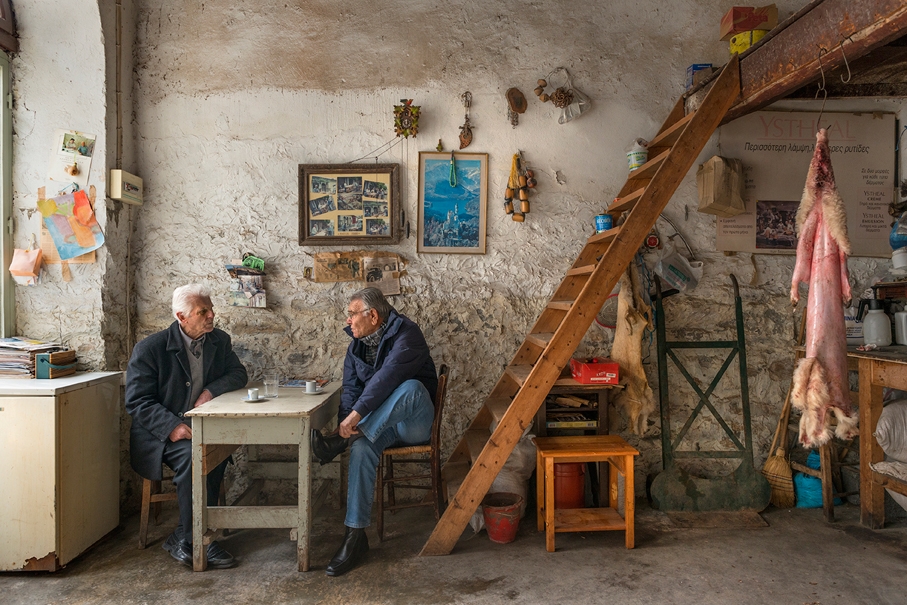ArtReview sent a questionnaire to artists and curators exhibiting in and curating the various national pavilions of the 2015 Venice Biennale, the responses to which will be published daily in the lead-up to the Venice Biennale opening.
Maria Papadimitriou is representing Greece. The Pavilion is in the Giardini.
What can you tell us about your exhibition plans for Venice?
My work is about the relationship between humans and animals. The title is Why look at animals? Agrimiká. Agrimiká is the greek word for wild animals that cannot be domesticated, such as foxes, bears, rabbits or wild boars. Resistance leaders during the Greek Civil War (1946-49) were also called Agrimiká. Of course, Why look at animals? is taken from the title of John Berger essay in his book About Looking (1980).
The relationship of humans to animals sparks many concerns, ranging from politics and history to economics and traditions, ethics and aesthetics, fear of the foreign and the incomprehensible. Our profound anthropocentrism allows us to define ourselves as ‘non-wild’ and different from all other animals.
I will bring an actual shop that sells animal hides and leather from the Greek city of Volos, where it operates, to the Greek pavilion in the Giardini. In the ‘ruined’ landscape of the Greek pavilion, the animals that cannot be domesticated – the Agrimiká – become the vehicle for a contemporary allegory of the ‘beast’ that resists becoming our property.
Are you approaching this show in a different way as to how you would a ‘normal’ exhibition?
No, I don’t change my attitude according to the place and the context of my exhibitions. I just do the job.
What does it mean to ‘represent’ your country? Do you find it an honour or problematic?
I feel honored. Also I hope that my art can communicate something important about the current crisis in Europe and how we all got there. Greece has become a paradigm for a situation that has an impact on all of us. Our country was the first experiment in a much larger global project for testing new methods of economic coercion and for taking apart the social welfare state. That’s happening everywhere. Perhaps that’s the reason why the next Documenta will be taking place in Athens and in Kassel.
How are you approaching the different audiences who come to Venice – the masses of artist peers, gallerists, curators and critics concentrated around the opening and the general public who come through over the following months?
My work is open to any kind of reading and to any kind of viewer. I believe in simple works, not in works for specialised audiences. There is a lot of research behind each of my projects, but they should touch everyone, albeit for different reasons. As always, the meaning of the works – mine and others’ – will depend upon who is looking. Each viewer will have his or her own interpretations.
What are your earliest or best memories of the biennale?
My most recent best memory was from the last Architecture Biennale. I liked the Danish pavilion, which addressed the development of a welfare state, and the role that architecture, in connection with art, literature and science had in creating an aesthetic manifestation of this ’better life for all’. Since I work between the fields of art and architecture, I like to think about art when I see the architecture biennale, and about architecture when I see the art biennale.
You’ll no doubt be very busy, but what else are you looking forward to seeing?
The art works and projects made by my friends and others – and of course my friends!
How does a having a pavilion in Venice affect the art scene in your home country?
I don’t think it does.
Read all responses to the Venice Questionnaire 2015 edition published so far
Read all 30 responses to the Venice Questionnaire 2013 edition
Online exclusive published on 8 May 2015.
